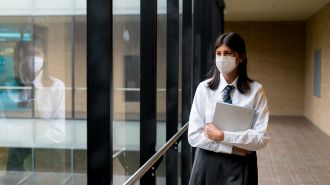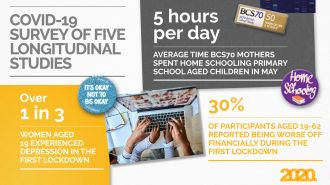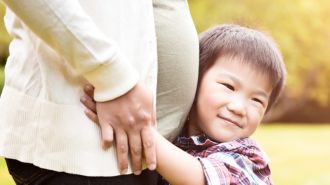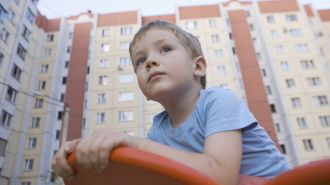- Our studies
- Our research
- Publications and resources
- Data access and training
- About
- News
- Events
- Get in touch
- Join our mailing list
Welcome to our news and blogs section. Here you’ll find the latest developments and insights from across our longitudinal studies.
Growing Up in the 2020s is the country’s first comprehensive long-term study tracking adolescents’ development and educational outcomes following the Covid-19 pandemic.

The Centre for Longitudinal Studies (CLS) is part of the team behind a new cohort study of current Year 11 students, which will investigate the educational and employment inequalities brought about by the COVID-19 crisis.

From this summer, we hope to start catching up with our BCS70 participants to see how they’re faring in their early 50s.

As the pandemic has unfolded we have surveyed participants of five national longitudinal studies, including the 1970 British Cohort Study (BCS70) to track the effects of COVID-19 over time. Here’s a summary of our researchers’ initial findings.

Our initial findings from the Millennium Cohort Study Age 17 Sweep cover a range of themes, including mental health, obesity, substance use and antisocial behaviours.

This project aims to advance our understanding of whether Medically Assisted Reproduction (MAR) affects the wellbeing of families, and if so why. Using datasets from the Millenium Cohort Study, we analyse MAR’s effects on a large range of adults/child outcomes through innovative research designs.

This research project aims to investigates the consequences of growing up without siblings, particularly longer-term wellbeing and life chances.

This project aims to investigate the gender wage gap (GWG) over the life course and across cohorts, using three CLS studies – the National Child Development Study, 1970 British Cohort Study and Next Steps.
In honour of the 50th anniversary of the 1970 British Cohort Study, this scientific conference will showcase the latest cutting-edge research using CLS cohort data.
Ryan Bradshaw
Senior Communications Officer
Phone: 020 7612 6516
Email: r.bradshaw@ucl.ac.uk